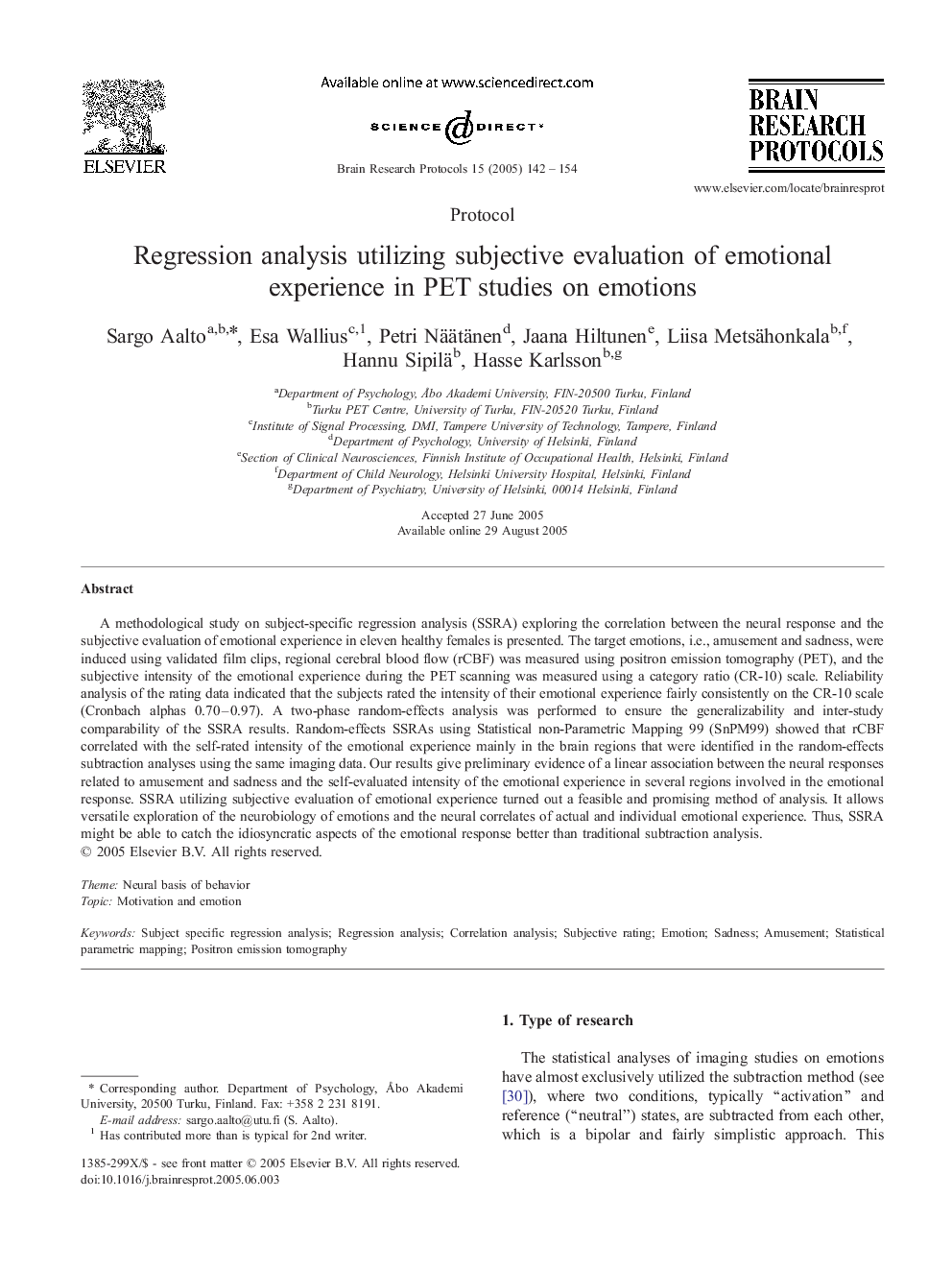| Article ID | Journal | Published Year | Pages | File Type |
|---|---|---|---|---|
| 9422691 | Brain Research Protocols | 2005 | 13 Pages |
Abstract
A methodological study on subject-specific regression analysis (SSRA) exploring the correlation between the neural response and the subjective evaluation of emotional experience in eleven healthy females is presented. The target emotions, i.e., amusement and sadness, were induced using validated film clips, regional cerebral blood flow (rCBF) was measured using positron emission tomography (PET), and the subjective intensity of the emotional experience during the PET scanning was measured using a category ratio (CR-10) scale. Reliability analysis of the rating data indicated that the subjects rated the intensity of their emotional experience fairly consistently on the CR-10 scale (Cronbach alphas 0.70-0.97). A two-phase random-effects analysis was performed to ensure the generalizability and inter-study comparability of the SSRA results. Random-effects SSRAs using Statistical non-Parametric Mapping 99 (SnPM99) showed that rCBF correlated with the self-rated intensity of the emotional experience mainly in the brain regions that were identified in the random-effects subtraction analyses using the same imaging data. Our results give preliminary evidence of a linear association between the neural responses related to amusement and sadness and the self-evaluated intensity of the emotional experience in several regions involved in the emotional response. SSRA utilizing subjective evaluation of emotional experience turned out a feasible and promising method of analysis. It allows versatile exploration of the neurobiology of emotions and the neural correlates of actual and individual emotional experience. Thus, SSRA might be able to catch the idiosyncratic aspects of the emotional response better than traditional subtraction analysis.
Keywords
Related Topics
Life Sciences
Neuroscience
Neuroscience (General)
Authors
Sargo Aalto, Esa Wallius, Petri Näätänen, Jaana Hiltunen, Liisa Metsähonkala, Hannu Sipilä, Hasse Karlsson,
